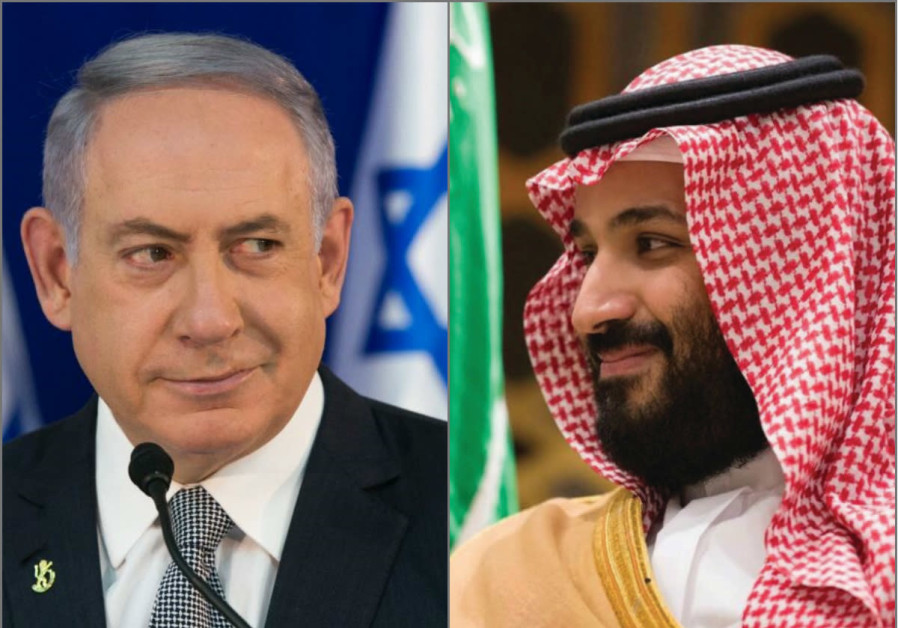Saud al-Mojeb set to discuss the latest findings of the probe into Khashoggi's killing with Turkish investigators.
Saudi Arabia has admitted
Jamal Khashoggi was killed inside its consulate in the Turkish city of Istanbul.
Khashoggi - a Saudi writer, US resident, and Washington Post columnist - entered the building on October 2 to obtain documentation certifying he had divorced his ex-wife so he could remarry.
After weeks of repeated denials that it had anything to do with his disappearance, the kingdom eventually acknowledged that the murder was premeditated. The whereabouts of his body are still unknown.
Here are the latest developments:
Sunday, October 28
Turkey to present Saudi probe findings, request residence search
Turkish investigators looking into Khashoggi's killing will present Saudi Arabia's top prosecutor with a 150-page dossier and request another joint search at the residence of the kingdom's consul-general in Istanbul, according to a Turkish source.
Saudi prosecutor Saud al-Mojeb will meet on Monday Irfan Fidan, the Istanbul chief public prosecutor, to discuss the latest findings in the case.
According to a source at the Istanbul prosecutor's office, who spoke to Al Jazeera on condition of anonymity, Fidan will ask al-Mojeb to conduct another joint search at the consul-general's residence.
Meanwhile, the dossier that will be presented to al-Mojeb in Monday's meeting will include interviews with 45 consulate employees.
According to the source, the file also identifies four people as the prime suspects of Khashoggi's killing but names only three of them: Saudi Consul-General Mohammed al-Otaibi, forensics expert Saleh al-Tubaiqi and Maher Abdulaziz Mutreb, who was identified as being part of a 15-member team of suspected Saudi agents who flew into and out of Istanbul on October 2, the day of Khashoggi's disappearance after entering the consulate to obtain paperwork needed for his upcoming marriage.
The fourth person that will be presented as a main suspect is an unnamed "local collaborator" who, according to Riyadh, was given Khashoggi's body in order to dispose of it.
Saudi station chief 'explored forest a day before Khashoggi's murder'
Police sources have told Turkish media that the Saudi consul station chief in Istanbul went to a forest north of the city, a day before Khashoggi's killing.
A CCTV image, obtained by state television network TRT and other media, showed a black car with a diplomatic license plate at an entrance to Belgrad Forest on October 1.
Al Jazeera's Charles Stratford, reporting from Istanbul, said the man being implicated was Ahmad Abdullah al-Muzaini, one of the station chiefs of the consulate since 2015.
"In the last week or so, it's also been reported that al-Muzaini left Istanbul for Riyadh on September 29 and returned on October 1, and that's the day, according to these reports that he was seen around that forest."
President Recep Tayyip Erdogan said earlier this week that consulate officials made "reconnaissance" trips to the forest as well as the city of Yalova a day before Khashoggi was killed.
Top Saudi prosecutor arrives in Turkey
Saudi Arabia's attorney general has arrived in Turkey to hold talks with investigators looking into the killing of Khashoggi.
Turkey has said Saudi Arabia's top prosecutor, Saud al-Mojeb, is expected to discuss the latest findings of the investigation with Turkish investigators.
Ther visit comes just days after CIA director Gina Haspel was in Turkey to review evidence before briefing the US president.
Turkey is seeking the extradition of 18 Saudi suspects detained in the kingdom in connection with the October 2 killing.
Saudi Arabia's foreign minister appeared to reject that notion in remarks on Saturday, saying the kingdom would try the perpetrators and bring them to justice after the investigation is completed.
UK knew of Saudi plot to kidnap Khashoggi three weeks before killing - Express
Britain's
Sunday Express newspaper is reporting that the UK was made aware of a plot to kidnap Jamal Khashoggi and take him back to Saudi Arabia, three weeks before he entered the Saudi consulate in Istanbul and was killed.
An intelligence source told the Sunday Express: "We were initially made aware that something was going in the first week of September, around three weeks before Mr Khashoggi walked into the consulate on October 2.
"These details included primary orders to capture Mr Khashoggi and bring him back to Saudi Arabia for questioning. However, the door seemed to be left open for alternative remedies to what was seen as a big problem.
"We know the orders came from a member of the royal circle but have no direct information to link them to Crown Prince Mohammad bin Salman."
The source added that MI6 had warned their Saudi counterparts to cancel the mission, though this request was ignored.
"On October 1 we became aware of the movement of a group, which included members of Riasat Al-Istikhbarat Al-Amah (Saudi Arabia's General Intelligence) to Istanbul, and it was pretty clear what their aim was.
"Through channels we warned that this was not a good idea. Subsequent events show that our warning was ignored."
Mattis calls for transparent probe in Khashoggi killing
US defence secretary, Jim Mattis, said that he had met Saudi Arabia's foreign minister and called for a transparent investigation into the killing of Khashoggi.
Mattis said he met Saudi Foreign Minister Adel al-Jubeir during a conference in Bahrain on Saturday and discussed the killing.
"We discussed it. You know the same thing we talked about, the need for transparency, full and complete investigation," Mattis told a small group of reporters travelling to Prague with him.
"(There was) full agreement from foreign minister Jubeir, no reservations at all, he said we need to know what happened and it was very collaborative, in agreement," Mattis added.
Saturday, October 27
France's Macron calls for sanctions over Khashoggi killing
French President Emmanuel Macron has called for sanctions on those responsible for Khashoggi's murder.
"For me, things are clear. Firstly, some of facts have been established. We must fully investigate the nature of these facts, and who's responsible," he told reporters on the sidelines of a four-way Syria summit in Istanbul, also attended by the leaders of Turkey, Germany and Russia.
"Sanctions must be taken on this basis and these sanctions must be coherent and complete, and be extremely concrete and proportional," added Macron.
"It will depend on the facts as they are established and the sanctions will be taken at a European level, as we usually do, so that there is true coordination."
Merkel and Macron to seek joint EU position on Saudi arms sales
German Chancellor Angela Merkel and French President Emmanuel Macron have agreed to find a common European Union position on arms sales to Saudi Arabia, according to Germany's leader.
"We agreed that when we have more clarity, and we are counting on that, when we know who was behind this then we will try to find a unified European solution or reaction from all member states of the European Union to show that we negotiate on the basis of common values," Merkel told reporters in Istanbul.
The chancellor has promised to halt all German arms exports to the kingdom until the killing of Khashoggi is explained.
Turkey's Erdogan demands more answers in Khashoggi case
Turkey's President Recep Tayyip Erdogan says he has shared details of the Khashoggi case in bilateral talks during a four-way summit on Syria with the leaders of Russia, France and Germany.
Speaking at a joint news conference following a summit in Istanbul, Erdogan said Riyadh needed to say who sent to Turkey the 18 people believed to be responsible for the journalist's killing.
He also said Ankara valued the conclusion of discussions between Turkish and Saudi prosecutors, who are due to meet on Sunday.
Macron, Merkel back Europe coordination on arms sales to Saudi
France and Germany's leaders have said they want a "coordinated" European position for sanctions on arms sales to Saudi Arabia.
This came after French President Emmanuel Macron implied on Friday that German Chancellor Angela Merkel's government was engaging in "pure demagoguery" by halting arms sales to Riyadh.
On the sidelines of a Syria summit in Istanbul, the two leaders had a "peaceful exchange", the Elysee palace said, and agreed not to announce their next positions on the issue without first coordinating "at the European level".
Saudi FM: Khashoggi issue has become 'hysterical'
Saudi Foreign Minister Adel al-Jubeir has criticised the global outcry surrounding Khashoggi's killing as "hysterical" and rejected Turkey's demand to extradite the suspects.
"The issue has become fairly hysterical," Jubeir said, adding that investigations take time and facts should be determined as inquiries continue.
Answering questions from journalists at a regional summit in Bahrain, Jubeir described Saudi Arabia's relationship with the United States as "ironclad", despite earlier comments from US Secretary of State James Mattis that the killing "undermines regional stability".
Saudi FM: Khashoggi murder suspects will not be extradited
Riyadh dismissed Ankara's calls to extradite 18 Saudis wanted for the murder of Khashoggi.
"The individuals are Saudi nationals. They're detained in Saudi Arabia, and the investigation is in Saudi Arabia, and they will be prosecuted in Saudi Arabia," Foreign Minister Adel al-Jubeir told a regional defence forum in Bahrain.
He was responding to Turkish President Recep Tayyip Erdogan who on Friday renewed his call for the 18 men to be extradited for trial in Turkey.
Mattis: Khashoggi killing 'undermines regional stability'
US Defence Secretary James Mattis said that Khashoggi's murder "undermines regional stability" and that the US intends to take further action in response.
Speaking to an audience of international officials in Bahrain, Mattis avoided mentioning Saudi Arabia in connection with the murder but did say that US Secretary of State Mike Pompeo had already revoked some Saudi visas and "will be taking additional measures".
"With our collective interests in peace and unwavering respect for human rights in mind, the murder of Jamal Khashoggi in a diplomatic facility must concern us all," he said.
He added that "our respect for the Saudi people is undiminished" but that respect "must come with transparency and trust".
Mattis also argued that Russia could not replace US commitment to the Middle East, saying that Moscow lacked essential moral principles, and renewed criticism of Iran's "outlaw regime".
https://www.aljazeera.com/news/2018/10/jamal-khashoggi-case-latest-updates-181010133542286.html







